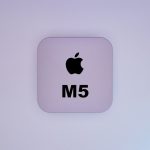Human Resources (HR) has evolved far beyond administrative tasks and payroll processing. In today’s rapidly shifting corporate landscape, organizations are increasingly focusing on the employee experience — a comprehensive term that includes everything from onboarding to career development, feedback culture, mental wellbeing, and work-life balance. This shift has called for a new generation of HR tools designed to not just manage personnel but to actively enhance their experience at work.
With the help of technology, businesses are now equipped to deliver personalized, efficient, and responsive HR services. This article explores the next-generation HR tools that are redefining employee engagement and satisfaction, contributing to stronger workplace cultures and improved performance.
The Rise of Employee-Centric HR Technology
For decades, HR software revolved around compliance, time tracking, and personnel file management. While those operations remain essential, modern HR departments are leveraging advanced platforms to support a more holistic approach to employee engagement. Today’s tools are informed by data analytics, artificial intelligence, and cloud technology, making it easier than ever for companies to design tailored experiences that increase retention, drive performance, and elevate morale.
Key Drivers Behind the Shift
- Remote and hybrid work models: The global shift to remote work has pushed organizations to rethink how they support employees outside the physical office.
- Generational changes in the workforce: Younger employees expect tech-enabled, intuitive platforms for learning, communication, and growth.
- A focus on wellbeing and inclusion: Diversity, mental health, and work-life balance are now considered essential components of employee satisfaction.
- Data-driven decision making: HR teams are seeking actionable insights to make better decisions around people investments.
Essential Next-Gen HR Tools Enhancing Employee Experience
The new era of HR is being shaped by a number of innovative tools designed to align company goals with employee needs. Here are some of the most impactful technologies redefining HR today.
1. AI-Powered Onboarding Platforms
First impressions count. Modern onboarding platforms are leveraging artificial intelligence to personalize the onboarding journey. These tools provide dynamic task lists, chatbots for FAQs, and real-time updates to help new hires acclimate more quickly and confidently.
Additionally, automated scheduling and e-signature integrations streamline compliance aspects, while embedded learning modules facilitate early training and development.
Example tools: Enboarder, BambooHR, Sapling, Leapsome

2. Experience Management Systems
These platforms measure and analyze employee sentiment through regular pulse surveys, feedback loops, and engagement scoring. Unlike annual reviews, these real-time data points offer a window into how employees actually feel about their work, team, and culture — now and over time.
Advanced analytics can detect patterns that lead to disengagement or turnover risk, enabling HR teams to act proactively. Moreover, these systems empower employees by giving them a voice in shaping the organizational environment.
Example tools: Qualtrics EmployeeXM, Glint, Culture Amp
3. Digital Performance Management Systems
Traditional performance reviews are being replaced by continuous feedback models. New tools facilitate objective goal setting, peer feedback, and frequent check-ins, making the review process more collaborative and aligned with real-time performance.
These platforms use intuitive dashboards and visual analytics to support managers and employees in tracking progress and adjusting goals dynamically.
Example tools: Lattice, 15Five, Reflektive
4. Learning Experience Platforms (LXPs)
Upskilling and career development are priorities for modern employees. LXPs offer personalized learning paths powered by AI recommendations, integrations with course providers, and user-generated content. More than just training repositories, they are interactive environments that encourage knowledge sharing and self-directed growth.
This fosters a culture of continuous learning, which contributes positively to job satisfaction and long-term retention.
Example tools: Degreed, EdCast, LinkedIn Learning
5. Wellbeing & Mental Health Applications
Today’s organizations recognize that productivity and wellbeing go hand in hand. Next-gen HR ecosystems integrate mental health resources directly into their workflow. Tools for meditation, stress management, health tracking, and teletherapy access are increasingly common.

These applications offer not just crisis support but proactive solutions to improve overall mental resilience among teams.
Example tools: Headspace for Work, Modern Health, Calm Business
Integration and Accessibility: The Backbone of Efficiency
Of course, having access to powerful HR tools is only effective if users can navigate them easily. The best next-gen platforms integrate seamlessly with existing work environments — from Slack and Microsoft Teams to Salesforce and cloud-based productivity suites. Many are mobile-first, acknowledging that today’s employees often work across multiple devices and locations.
Integration capabilities also play a key role in data analytics, by centralizing insights across performance, engagement, and wellness. This allows HR leaders to make informed, timely decisions rather than operating in silos.
AI and Machine Learning: A Transformative Force
Artificial Intelligence is another cornerstone of next-gen HR tools. Whether it’s powering chatbots for HR inquiries or analyzing employee engagement trends, AI is transforming how HR professionals approach people management.
- Predictive analytics: AI can forecast which employees are likely to leave, underperform, or seek promotion.
- Natural language processing: Tools can analyze open-ended feedback and evaluate sentiment at scale.
- Personalized content delivery: Learning and development platforms suggest relevant courses based on the individual’s role and interests.
AI also significantly reduces repetitive tasks, freeing up HR teams to focus on strategic initiatives that impact culture and engagement.
Compliance and Security Considerations
While next-gen HR tools offer vast benefits, companies must remain vigilant about data security, privacy laws, and ethical AI use. Tools handling sensitive employee data must comply with standards such as GDPR, HIPAA, or local equivalents. Transparent data management practices not only ensure compliance but also build trust among employees.
The Future: Immersive, Human-Centric HR
Looking ahead, we can expect HR tools to become even more immersive and user-centric. Virtual Reality (VR) onboarding, behavioral analytics for team optimization, and even blockchain-based payroll systems are in active development. What connects these innovations is a commitment to treating employees not just as assets, but as central stakeholders with evolving needs and aspirations.

Moreover, the ability to customize and scale these systems across global workforces ensures that companies of all sizes can participate in this next wave of employee experience evolution.
Conclusion
The transformation of HR technologies is more than a trend — it’s a strategic imperative for organizations aiming to attract, retain, and empower talent in a competitive market. Next-gen HR tools are enabling companies to transition from purely operational functions to experience-focused cultures that prioritize employee engagement, growth, and well-being.
From AI-powered onboarding to wellness platforms and predictive analytics, these innovations are not just changing how businesses operate — they are improving the very nature of work itself. As organizations embrace this new era, those who invest in the right tools today will be best positioned to thrive tomorrow.
 logo
logo


